Puppies are energy-filled creatures that are always ready to play. At this age, they are ready to learn new skills. Also, they develop habits that shape them in the long run. This is why you need a hands-on approach to ensure that they learn the best habits and grow up healthy too.
See also:
Unlike human infants, 8 week old puppies do not need a lot of vet visits in the first year of their lives. Still, you may need to get a vet for the visits later in life. This would reduce stress when you need one in the future.
By 8 weeks, puppies are old enough to leave their mothers. This is always a good age to adopt a puppy. Separating the puppy from its mother before this time is not advisable.
This guide contains all you need to know about caring for your 8-week old puppy. You will learn more about what to feed the puppy, how to train him and everything you need for a puppy.
Contents
8-week old Puppy Food
It seems simple to feed puppies, but it is more complicated. You need to consider the weight of the puppy, and perhaps the breed. It is not enough to just buy puppy food, from the store.
Also, when it comes to buying puppy food by size, so many of the puppy foods specify which breeds can eat it. However, it may still be confusing because most dogs are medium-sized, so how can you find the right food for your puppy?
[box_text icon=”arrow-box” box-text-color=”green” text=”Puppy foods made for large breeds often contain slow-burning nutrients or more carbs. This helps them to grow properly. This is because larger breeds are prone to growing too fast and that can be a problem. Fast growth is not an issue for smaller breeds.”]
For smaller breeds, puppy foods focus on low carbs and high volumes of protein. Such puppies usually have a quick but sensitive digestive system. The high protein diet helps soothe their sensitive stomach.
Puppies have a high caloric need, so you need to feed them with foods that offer excellent nutritional density. This implies that the food for pups should contain fewer fillers and higher quality ingredients than the average adult dog food.
Also, consider the fact that puppies who are above 8 weeks are in a transition period. This is a time when the puppies leave their mothers and start to consume solid food. Opt for dry or wet food or even a nice combination of both. If you choose to feed the puppy dry food, then it would be ideal to soften the kibble using warm water since it may be too hard to chew on.
As the puppy grows, while choosing puppy food, consider how quickly they pup has grown in the last week or 2 weeks. It would help you to decide if the food is ideal for the pup.
Puppy Feeding Schedule
Your puppy needs to eat at least three times a day. Ideally, 4 feedings are recommended even though it can be a bit difficult to follow up with the feeding schedule. How can you handle this problem and balance proper feeding with your busy schedule?
You can solve this problem by planning their feeding around when you leave home. Some pets may not like this as it increases anxiety in some dogs.
The following schedule is recommended:
- Feed the pup first thing in the morning
- The pup should eat again before you go to work
- When you return home from work
- Just before you go to bed
This routine is a lot easier to follow and it should keep the puppy full all day. It doesn’t matter if the first and second meals are only a few minutes apart, it promotes healthy eating. Lots of 8-week old puppies have to deal with curiosity and fear and eating properly may help curb this fear.
When your puppy is not eating
If your puppy refuses to eat, you need to watch him determine the cause of the problem. If the puppy acts normal but isn’t eating, wait it out. He may come around eventually, especially if he keeps drinking water. Some dogs experience loss of appetite due to weather changes. However, if this continues for more than two days then you may need to see a vet.
When a puppy has an upset stomach
So many things can be responsible for an upset stomach. Since the pup is very young with a developing immune system, he may be prone to such stomach issues. Be sure to observe the issues and if it lasts longer than 24 hours, it is recommended that you take the pet to a vet.
When an 8-week old puppy has diarrhea
With smaller breeds, diarrhea can be more common. Since most puppies younger than 8 weeks take only milk from their mother, new food may cause diarrhea. Introducing them to kibble or wet food may affect their digestive system and sensitive stomachs.
The effects may be temporary but you need to follow some steps to ensure that it stops.
- Keep fresh water for the pup often
- Don’t change food for at least two weeks
- Visit the vet if the pup has discomfort, pale gums, bloating, bloody diarrhea and vomiting.
[box_text icon=”arrow-box” box-text-color=”orange” text=”The freshwater helps keep the pup hydrated during the episode. Most times, the culprit is the new food. Therefore, you need to introduce new food slowly to the pup.”]
However, where the pup already has diarrhea, you can try the new food. Try one food type for at least two weeks before changing to be sure of the problem. After 2 weeks of trying the new food and the digestive issues persist, you must change the diet.
Puppy Training
The best part of having a puppy is training. Remember that training is mainly about creating long term habits. Note also that it does not have to be just training the pup to do tricks. It should include crate training or potty training as well as good behavior commands.
Here are some do’s and don’ts of training an 8-week old puppy:
Do’s
- Always reward good behavior
- Work without distractions
- Use your voice as well as your hands
- Schedule time for all training
- Always use the same commands after and during training time.
Don’ts
- Always allow the dog to walk in front of you
- Use a higher pitched voice to get the puppy’s attention
- Stop practicing
These tips can guide you from start to finish. Remember to stay consistent with disciplining bad behavior and rewarding the good ones. For instance, if your pup loves to chew, you only need to discipline him for chewing on shoes or anything that isn’t the chew toy.
At 8 weeks old, a pup is ready for training. The pup is at a perfect age to learn and absorb all the training. So which training should you start first?
Most puppy owners prefer to start with the basics. Basics include potty training or house training. Other simple commands include “sit, heel or down.” These are basic training as well. Potty training is the most difficult aspect of puppies. However, with consistency, you can achieve your goal and move on to other tasks such as crate training.
Now that you know the early steps of training, you can pick one of the basics to start with.
Potty Training
Unlike cats, potty training does not come naturally to dogs. Some puppy may have already been housebroken before being adopted. But if this isn’t the case, you may need to take some time to train the pup with outside visits and puppy pads.
If your dog stays outside during the night or day, you may have an advantage. This is because the dog stays outside often so he will feel comfortable using the potty outside.
However, if your pup stays indoors or in the apartment without a yard, you may need to make many outside trips with a leash. This exercise may be beneficial in the long run as it also trains the pup to behave well when he is on the leash. At the same time, he would be learning to do his business outside and not on your living room carpet.
To begin the potty training process, start with using puppy pads. Observe the dog’s preferred spot to pee and put a pad there. It is recommended that you soak a little bit of pee with the pad so the pup can smell it and use it again as his restroom.
After a few days of training, you can begin to move the puppy pad outside by taking it closer to the door. When it moves closer to the door, ensure that some scent of the pee is left on the new puppy pads.
[box_text icon=”arrow-box” box-text-color=”orange” text=”Potty training involves a lot of observation. You need to constantly watch the pup’s behavior. If you spot any squatting or sniffing, you need to take the pup outside.”]
How to Stop Puppy Biting Habits
It is natural for pups to bite. This is because they need to chew on things as their teething begins. Also, they use their mouth to explore their immediate environment.
When they play biting, it could be cute, but as they grow, their bites could become painful as their teeth are sharp. The pups never know how hard they are biting so you need to stop them before they draw blood.
You can start by inhibiting the biting. Puppies bite each other as they play, but when the puppy being bitten yelps, the biting puppy withdraws. You can try this method to stop puppy biting. If the pup starts to bite your hand too hard, make the hand go limp and try to imitate the yelping sound. It will make them release the hand. Immediately after the pup releases the hand, ignore him for about 20 seconds and resume play.
You can also opt to redirect the play by showing him that the skin is off limits for biting. Use a chew toy for this purpose. Do not be overly harsh when teaching the puppy not to bite.
Why is Your Puppy Crying at Night?
It can be heartbreaking to hear your 8-week old puppy crying at night. This is sad but happens because the pup is no longer with his mother and siblings. Since the pup isn’t used to being alone, he could cry at night.
To stop this, you can use a shirt, one you have worn recently and place it in their crate. You can also use a ticking clock. The smell from the shirt will comfort them as they assume you are close by. Also, a ticking clock reminds them of the sound of a heartbeat.
Puppy Chew Toys
It is recommended that you get chew toys for your pup while training. They could help massage the gums as the pup is teething and also prevent plaque. Be sure to pick out safe chew toys and observe the pup to know what chew toy is suitable.
Puppy Vaccinations
Be sure to check the pup’s vaccination history before giving him any vaccines. From 6 weeks to 8 weeks, your pup may need some vaccinations and booster shots. Confirm which vaccine the puppy needs from a vet and have them administered.
What To Do if a Puppy Has Fleas
At 8 weeks, a puppy is too young to use flea medication. This means that you need to treat the fleas by cleaning the pup with warm water and treating the beddings and the mother if she is near. You can also use a flea comb for grooming to eliminate some of the pests. Don’t let the pup return to the infected areas until you have treated them thoroughly.
Vomiting
Most times, puppies vomit when they rush food. Also, if they eat spoiled food, grass or swallow inedible objects. Monitor the dog’s eating habits to prevent all of the above. Where the vomiting continues and comes with lethargy, you need to visit the vet as soon as possible.
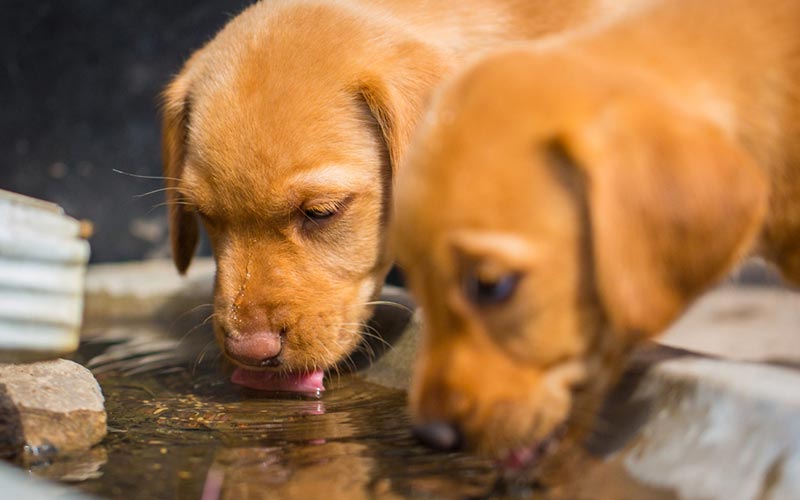
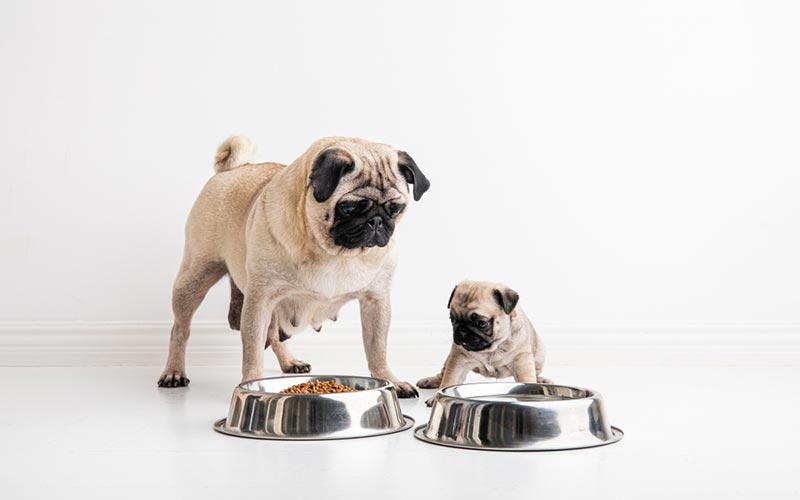
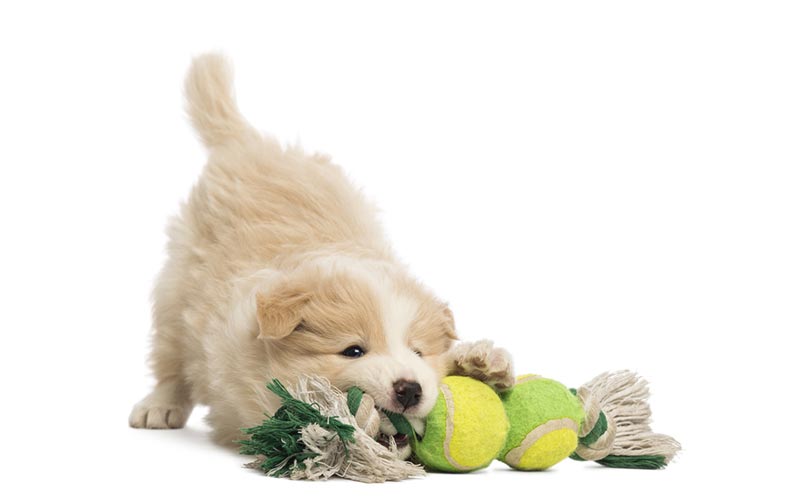
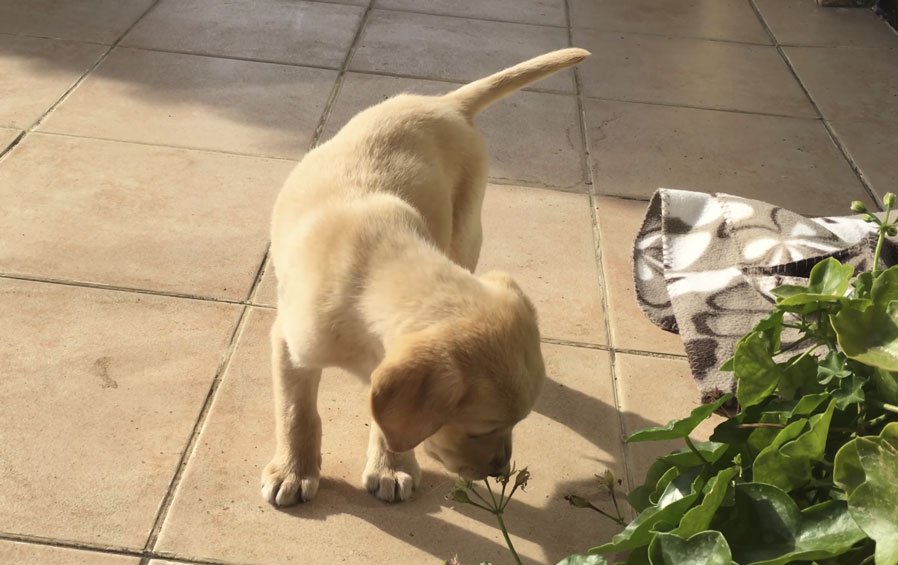 Getting a puppy at 6 weeks – Raising & care
Getting a puppy at 6 weeks – Raising & care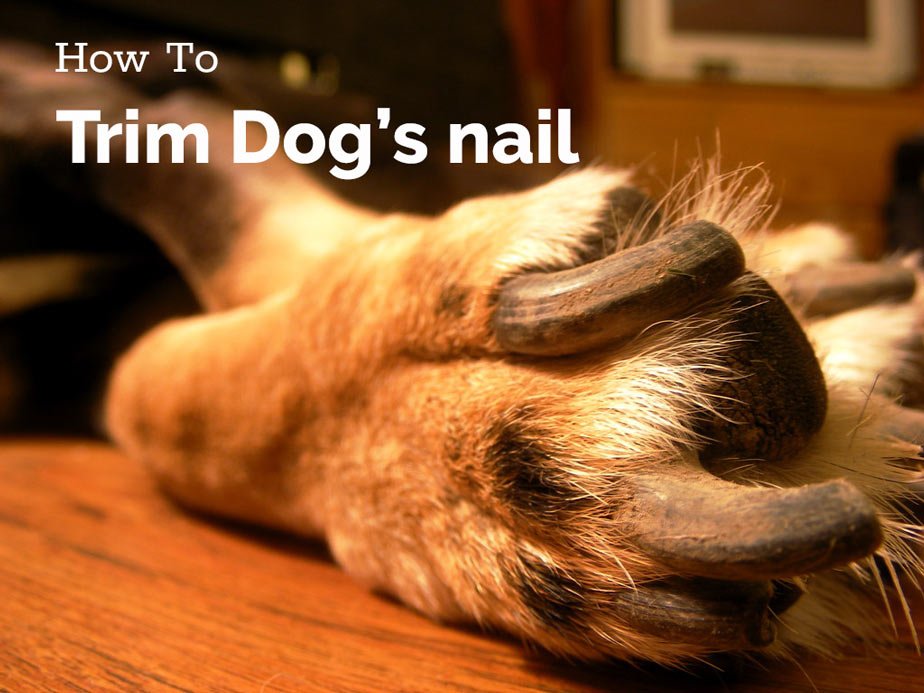 How To Trim Dog’s Nails That are Overgrown
How To Trim Dog’s Nails That are Overgrown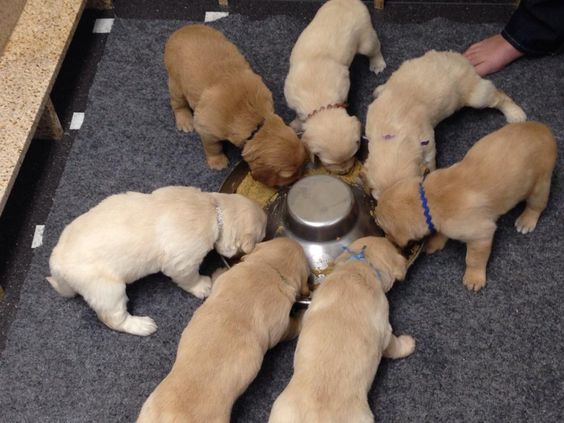 How To Wean a Puppy – Puppy Weaning Made Easy
How To Wean a Puppy – Puppy Weaning Made Easy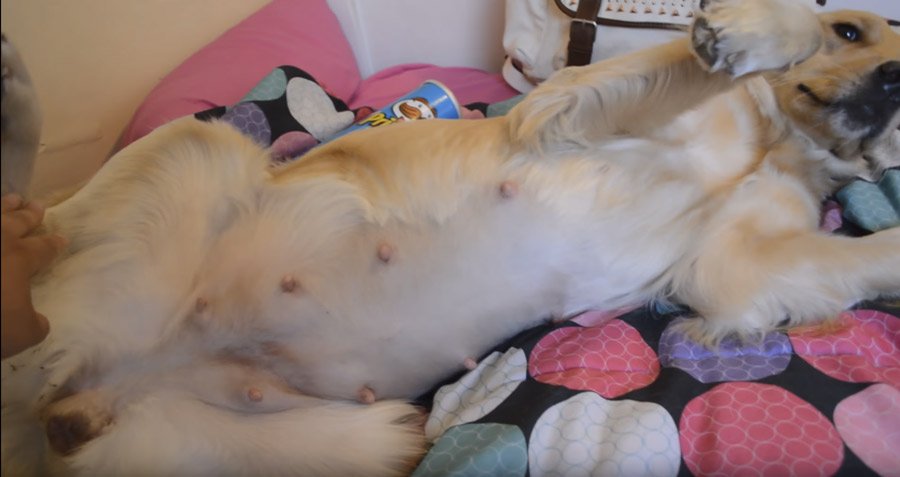 What to Do if Your Dog is Pregnant [Step By Step]
What to Do if Your Dog is Pregnant [Step By Step]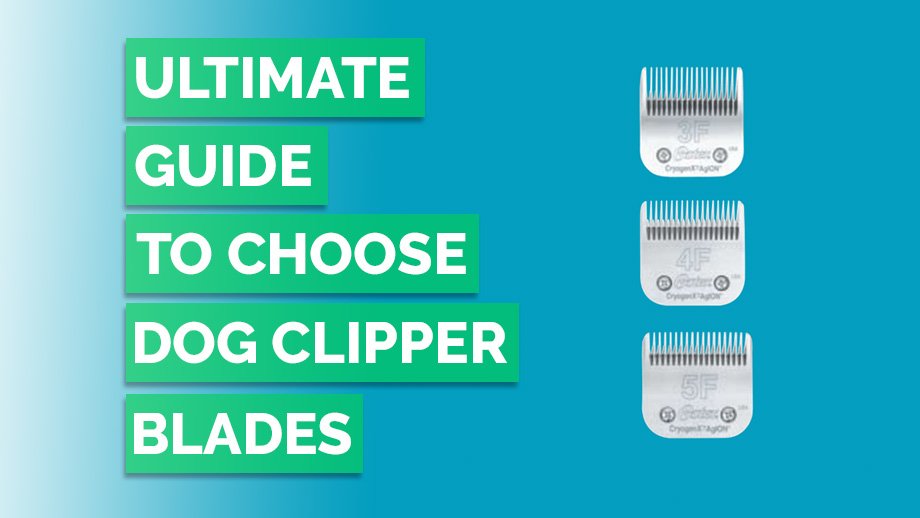 Ultimate Guide to Choose Dog Clipper Blades
Ultimate Guide to Choose Dog Clipper Blades
Leave a Reply